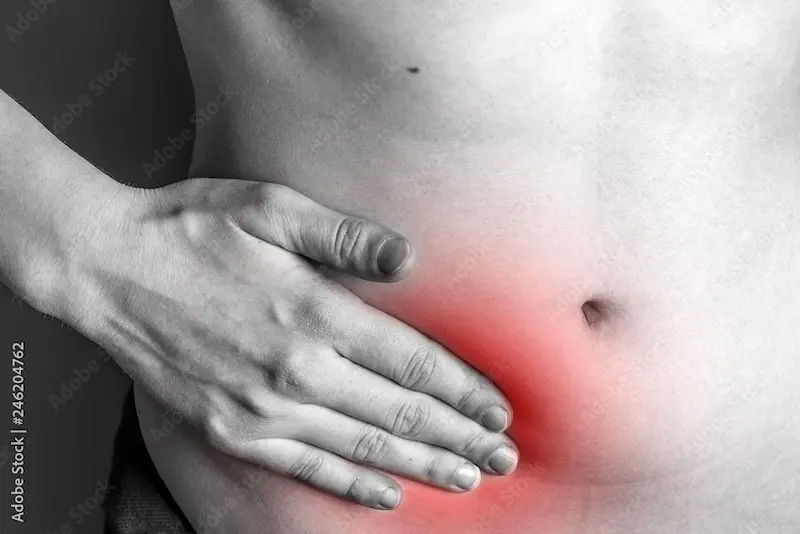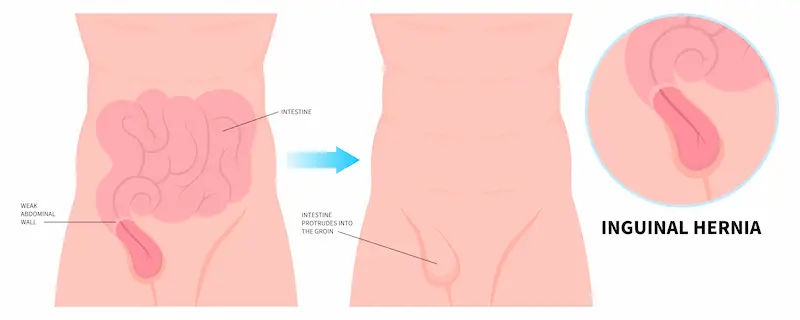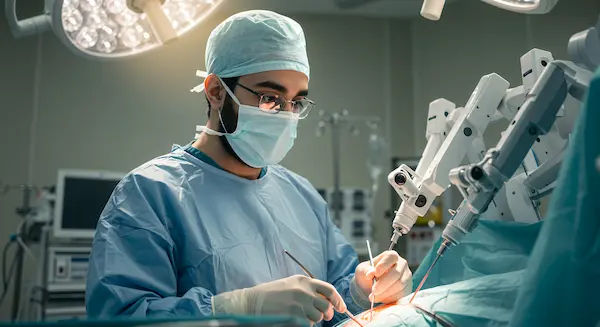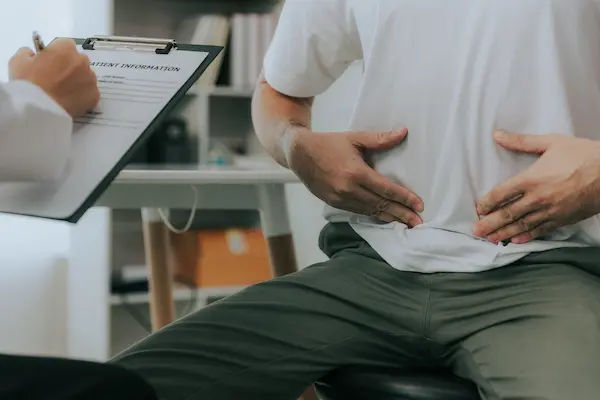Best Home Remedies and Care Tips for Managing Hernia
Safe hernia home remedies and natural care tips to ease symptoms, support abdominal health, and know when to seek medical help.


Introduction
Hernias are common and can affect anyone. While surgery is the only way to repair a hernia, many people can use safe hernia home remedies to reduce discomfort, protect abdominal health, and lower the risk of complications while they plan care with a clinician. This guide shares trustworthy, practical natural care strategies you can start today—and clear guidance on when to seek medical help.
What is a hernia and why it affects abdominal health?
A hernia happens when an internal organ or tissue pushes through a weak spot in muscle or connective tissue, often in the abdomen or groin. You might notice a soft bulge that appears with standing, coughing, or lifting and eases when you lie down. Some hernias are painless; others cause aching, pressure, or burning. Because hernias can get bigger or become trapped (incarcerated) and lose blood supply (strangulated), understanding self-care and warning signs is essential for your abdominal health.
Common types
• Inguinal (groin) hernia: Most common in adults, more often in men.
• Umbilical hernia: Near the belly button; common in infants and can occur in adults.
• Incisional hernia: At the site of a prior surgical incision.
• Hiatal hernia: The stomach pushes up into the chest through the diaphragm; often linked with reflux (heartburn).
Urgent warning signs—get medical help now
Call emergency services or go to urgent care if you have:
• Sudden or worsening pain at the hernia site
• A bulge that becomes hard, very tender, or cannot be pushed back in
• Redness, warmth, or color change over the bulge
• Nausea, vomiting, fever, or inability to pass gas or stool
• These may signal incarceration or strangulation, which require urgent treatment
Hernia home remedies: Safe, evidence-based self-care
Important note: Home care cannot “cure” a hernia. These strategies help relieve symptoms and reduce strain while you and your clinician decide on observation or plan a repair.
• Reduce strain: Manage constipation and coughing
• Straining increases pressure inside your abdomen and can worsen a hernia.
• Eat more fiber: Aim for around 25–30 grams of fiber daily from foods like vegetables, fruits, beans, lentils, oats, barley, and whole grains.
• Hydrate: Most adults do well with about 6–8 cups (1.5–2 liters) of fluids daily, unless your clinician advises otherwise.
Support regular bowel habits:
• Don’t delay urges to go.
• Use a footstool to elevate your feet when on the toilet to ease bowel movements.
• Consider an osmotic stool softener (such as polyethylene glycol) if you’re frequently constipated; ask your clinician or pharmacist what's right for you.
Tame a chronic cough:
• If you smoke, get help to quit—smoking worsens cough and slows healing.
• Treat allergies, asthma, or reflux as recommended by your clinician.
• -Use a humidifier and stay hydrated if you have a cold.
Consult Top Specialists
Smart movement and lifting
Protect the hernia by minimizing spikes in abdominal pressure.
Avoid heavy lifting and high-strain activities (for example, moving furniture, intense core workouts, or heavy squats).
If you must lift:
• Keep the object close to your body.
• Bend at your hips and knees, not your waist.
• Exhale as you lift; avoid holding your breath.
Choose low-impact exercise:
• Walking, gentle cycling, or swimming to support circulation, mood, and weight management.
Core care without strain:
• Skip crunches, sit-ups, heavy planks, or weighted abdominal twists.
• Favor gentle options like pelvic tilts and diaphragmatic breathing.
• A physical therapist can create a safe plan tailored to your hernia type and fitness level.
Weight and posture for better abdominal health
• Excess body weight raises pressure inside the abdomen and can aggravate hernia symptoms.
• Gradual, sustainable weight loss: Pair a balanced, high-fiber diet with regular low-impact activity.
• Avoid tight belts or waist trainers that push against the hernia.
• Maintain upright posture when sitting and standing; consider ergonomic adjustments if you sit for long periods.
Support garments: When to consider a truss or binder
• A hernia belt, truss, or abdominal binder may temporarily reduce discomfort for some groin or abdominal wall hernias.
• Use only under your clinician’s guidance and correct sizing.
• These supports do not fix a hernia and may mask worsening symptoms.
• Remove immediately and seek care if pain increases, the bulge changes color, or you feel nauseated.
Gentle reduction: If your clinician has taught you how
• Some reducible hernias can slide back with gentle pressure.
• Lie down and relax your belly with slow breaths.
• Apply light, steady pressure to the bulge with clean hands.
• Never force a hernia back in, and stop if it is painful or not moving.
• If you cannot reduce it or you have pain, nausea, or vomiting, seek urgent care.
Natural care for hiatal hernia and reflux symptoms
Hiatal hernias commonly cause heartburn, regurgitation, and chest or upper-abdominal discomfort. Lifestyle steps can help:
• Eat smaller, more frequent meals instead of large meals.
• Avoid trigger foods and drinks (vary by person): fatty or fried foods, spicy dishes, chocolate, peppermint, onions, tomato-based sauces, citrus, coffee, and alcohol.
• Don’t lie down for 2–3 hours after eating.
• Elevate the head of your bed 6–8 inches using blocks or a wedge pillow (extra pillows under your head alone usually don’t help).
• Maintain a healthy weight; even modest loss can reduce reflux.
• Avoid tight clothing or belts that compress your midsection.
• Consider over-the-counter options with guidance:
• Antacids for quick, short-term relief of occasional heartburn.
• Blockers or proton pump inhibitors for frequent symptoms; discuss duration and dosing with your clinician.
• Seek medical advice if symptoms occur more than twice a week, wake you at night, or persist despite these steps.
What not to do?
• Don’t rely on “miracle cures,” supplements, or aggressive abdominal exercises—none of these can repair a hernia.
• Don’t use tight wraps or corsets that increase pressure or restrict breathing.
• Don’t ignore new pain, a stuck bulge, nausea, vomiting, or fever.
• Don’t delay evaluation if your hernia is growing, painful, or interfering with daily life.
Planning medical care: Watchful waiting vs. repair
• Watchful waiting can be reasonable for some small, minimally symptomatic inguinal hernias in adults, particularly men, with close follow-up. Your clinician will help you decide based on your symptoms, activities, and health conditions.
• Surgical repair is the only definitive treatment for abdominal wall hernias. It’s recommended if you have pain, activity limits, recurrent symptoms, or complications, or if the hernia is enlarging.
Getting ready if surgery is planned
• Stop smoking and limit alcohol; both worsen healing.
• Optimize chronic conditions (for example, diabetes, blood pressure) with your clinician.
• Aim for steady weight loss if recommended.
• Build a “prehab” routine: gentle walking, breathing exercises, and protein-rich, high-fiber meals.
• Prepare your home: arrange help for lifting, meals, and chores during early recovery.
After surgery: Support recovery and prevent strain
• Follow your surgeon’s lifting and activity instructions closely.
• Walk several times a day to promote circulation and reduce constipation risk.
• Keep the incision clean and dry; watch for redness, drainage, fever, or increasing pain.
• Prevent constipation with fiber, fluids, and stool softeners if advised.
• Ask when you can return to driving, work, and exercise—and which movements to avoid at each stage.
Everyday checklist for hernia symptom control
• Choose high-fiber foods and drink enough fluids daily.
• Avoid straining: use a footstool on the toilet and don’t hold your breath during exertion.
• Skip heavy lifting; practice safe body mechanics when lifting light items.
• Maintain a healthy weight and upright posture.
• For a hiatal hernia, use reflux-smart eating habits and elevate the head of the bed.
• Use support garments only with clinician guidance.
• Know the red flags and when to seek urgent care.
Consult Top Specialists
Consult Top Specialists
Dr Sumanth R
General Physician
2 Years • MBBS
Bengaluru
PRESTIGE SHANTHINIKETAN - SOCIETY CLINIC, Bengaluru

Dr Anubhav Chittari
General Surgeon
3 Years • MBBS, M.S GENERAL SURGERY
Bengaluru
PRESTIGE SHANTHINIKETAN - SOCIETY CLINIC, Bengaluru

Dr. Kiran K J
General and Laparoscopic Surgeon
18 Years • MBBS, MS, FMAS, DMAS (Fellow & Dip in Min. Access surg.), FALS- Bariatric & Robotic Surgery
Bengaluru
Apollo Hospitals Bannerghatta Road, Bengaluru
(50+ Patients)

Dr. Gobalakichenin M
General and Laparoscopic Surgeon
23 Years • MS ( Gen. Surg. ), FMAS, AFIH
Chennai
Apollo Hospitals Greams Road, Chennai

Dr. Bhethala Sharan Prakash
General Physician/ Internal Medicine Specialist
5 Years • MBBS MD
Bengaluru
PRESTIGE SHANTHINIKETAN - SOCIETY CLINIC, Bengaluru
Consult Top Specialists
Dr Sumanth R
General Physician
2 Years • MBBS
Bengaluru
PRESTIGE SHANTHINIKETAN - SOCIETY CLINIC, Bengaluru

Dr Anubhav Chittari
General Surgeon
3 Years • MBBS, M.S GENERAL SURGERY
Bengaluru
PRESTIGE SHANTHINIKETAN - SOCIETY CLINIC, Bengaluru

Dr. Kiran K J
General and Laparoscopic Surgeon
18 Years • MBBS, MS, FMAS, DMAS (Fellow & Dip in Min. Access surg.), FALS- Bariatric & Robotic Surgery
Bengaluru
Apollo Hospitals Bannerghatta Road, Bengaluru
(50+ Patients)

Dr. Gobalakichenin M
General and Laparoscopic Surgeon
23 Years • MS ( Gen. Surg. ), FMAS, AFIH
Chennai
Apollo Hospitals Greams Road, Chennai

Dr. Bhethala Sharan Prakash
General Physician/ Internal Medicine Specialist
5 Years • MBBS MD
Bengaluru
PRESTIGE SHANTHINIKETAN - SOCIETY CLINIC, Bengaluru
More articles from Hernia
Frequently Asked Questions
1) Can a hernia heal without surgery?
No. A hernia won’t close on its own. Lifestyle steps can relieve symptoms and reduce strain, but surgical repair is the only way to fix the opening in the muscle or connective tissue.
2) Are hernia belts or trusses safe?
They can help some people feel more comfortable temporarily, but they don’t repair the hernia. Use them only if your clinician recommends the right type and fit. Stop using and seek care if pain worsens or the hernia changes.
3) What exercises are safe if I have a hernia?
Low-impact activities like walking, gentle cycling, and swimming are usually safe. Avoid heavy lifting, high-intensity core workouts, and any movement that causes pain or bulge enlargement. Diaphragmatic breathing and pelvic tilts are gentle options; a physical therapist can tailor a plan.
4) What diet helps with a hiatal hernia?
Smaller meals, less fat, and avoiding personal triggers (common ones include spicy foods, chocolate, peppermint, coffee, alcohol, citrus, and tomato-based dishes) can reduce reflux. Don’t lie down for 2–3 hours after eating, elevate the head of your bed, and maintain a healthy weight.
5) My child has an umbilical hernia—will it go away?
Many umbilical hernias in children close on their own by age 4–5. See your pediatrician for monitoring. Seek care sooner if the hernia becomes painful, stuck, discolored, or if your child vomits or seems very ill.




